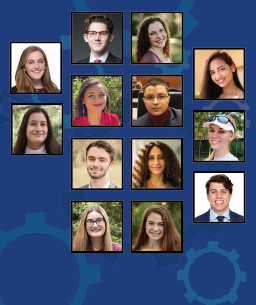A new cohort of thirteen University of Florida students have begun a significant year-long research opportunity in 2022-23 as Reubin Askew Scholars at the Bob Graham Center for Public Service.
Askew Scholars are selected annually through a competitive process based on their scholarship and commitment to community service and civic engagement. In addition to receiving an important undergraduate research experience, they are awarded $2000 over the course of an academic year to support a meaningful research project or a public service project with a community organization.
Faculty mentors guide the work of the Askew Scholars throughout the course of the academic year, with additional mentoring from the Graham Center staff to help the scholars prepare for a life of civic involvement.
The 13 scholars (and their UF faculty or organizational mentor) are:
- Brianna Alderman (Roger Blair, Economics)
- Sophia De La Cruz (Chonika Coleman-King, College of Education)
- Jordan Dickens (Bonnie Ernst, Sociology, Criminology & Law)
- Hannah Henry (Samuel J. Smidt, Soil, Water and Ecosystem Sciences)
- Isabella Kemp (Sarah McKune, Environmental & Global Health)
- Javier Kowalchuk (James Fishback, Incubate Debate)
- Campbell Lackey (Adrian A. Gonzalez, School of Art & Art History)
- Christian Lopez (Laura Gonzales, English)
- Katherine Marin (Paul Ortiz, History/Samuel Proctor Oral History)
- Rhiannon O’Donnell (Caroline Nickerson, Florida Community Initiative)
- Madeline Skena (Steven Noll, History)
- Andrew Taramykin (Michael McDonald, Political Science)
- Emma Towler (Colin Tucker Smith, Psychology)
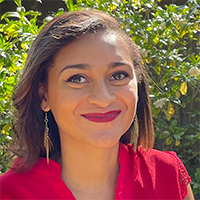 BRIANNA ALDERMAN
BRIANNA ALDERMAN
Brianna Alderman is a senior majoring in economics, mathematics and statistics. Her goal is to eventually earn a Ph.D. in economics and continue researching the role of public policy in addressing antitrust economics. Under the mentorship of economics professor Roger Blair, she is trying to better understand the issue of monopsony power, the ability of large employers to depress the wages they pay by reducing the number of workers they hire. Monopsony power is pervasive in local labor markets, she says, and may sometimes lead to wage discrimination that violates federal labor laws. Her research will help policymakers identify shortcomings in U.S. labor markets and craft policies that address wage inequity.
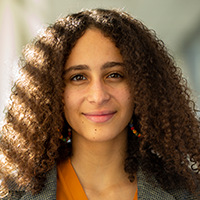 SOPHIA DE LA CRUZ
SOPHIA DE LA CRUZ
Sophia De La Cruz is a junior majoring in political science and minoring in family, youth and community sciences. For her project, she will partner with the Akwaaba Freedom School (AFS), a collaboration between the UF College of Education and the Children’s Defense Fund whose mission is to support youth development and summer learning at no cost. She will conduct research that examines the effects of AFS on families by evaluating the impacts of having free summer programs. Her goals are to support the development of AFS, empower Black and Hispanic students and increase educational equity in Alachua County. She will collect data through interviews, surveys and studies of academic success to show how AFS works as a unique partnership between the community and the government. The remaining funds will be used towards enrichment trips and scholastic materials.
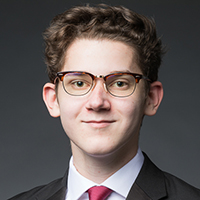 JORDAN DICKENS
JORDAN DICKENS
Jordan Dickens is a junior majoring in political science and history and minoring in Russian. His research centers on access to adequate reproductive care in women’s prisons in Florida. He says the number of incarcerated women has increased by 700% since 1980, doubling the rate of growth of the U.S. male prison population. Despite this, many female prisoners do not receive access to adequate healthcare – particularly adequate reproductive healthcare – while in prison. Jordan’s project aims to highlight barriers to reproductive care in Florida prisons with a particular focus on policies that have shaped reproductive access in prison. He also hopes to study how access differs along racial lines, as women of color are disproportionately represented in prison populations.
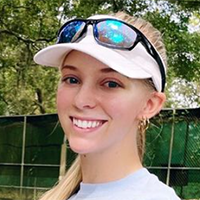 HANNAH HENRY
HANNAH HENRY
Hannah Henry is a senior wildlife ecology and conservation major pursuing minors in economics, sustainability studies, and international studies in agricultural and life sciences. Her project is a statistical analysis of research literature published over the last century related to the Triple Bottom Line theory of sustainability, a framework that describes the balance needed among three factors — people, planet and profit — to achieve a sustainable future. Hannah says historical trends have tended to favor one or the other factors at various points in time, hampering progress on achieving sustainability goals. “The results of this research project will lead us to rethink how we implement sustainability theories and practices, and ultimately provide guidance for harmonizing sustainability endeavors,” she says. In practical terms, her historical analysis may uncover meaningful trends that can better guide businesses and individuals onto new trajectories of tangible sustainability success.
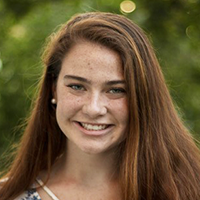 ISABELLA KEMP
ISABELLA KEMP
Isabella Kemp is a senior international studies major with minors in chemistry and German. She will conduct research under the direction of the Sahel Research Group at the University of Florida to produce an extensive literature review that identifies and compare regions of the world which data tools describe as both vulnerable and resilient to environmental hazards. Her research is expected to form the launchpad of a longer term UF research project that identifies gaps in knowledge of community-level climate change adaptations. In 2021, Isabella was named a Hollings Scholar by the National Ocean and Atmospheric Administration and has studied abroad at the University of Bonn. She served as a Tallahassee intern in 2022. She is also an active volunteer with organizations in the Gainesville area, including the UF Field and Fork Gardens, the Child Advocacy Center, and Willie Mae Stokes Community Center.
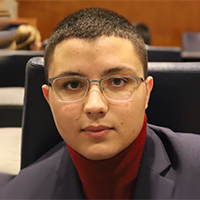 JAVIER KOWALCHUK
JAVIER KOWALCHUK
Javier Kowalchuk is junior majoring in political science and minoring in wealth management through UF’s business college. Throughout his term as an Askew scholar, he will provide programmatic support to Incubate Debate, a Florida nonprofit that provides rural and urban students throughout Florida the skills and confidence to learn about, discuss, and debate important issues shaping their communities. As a program director, Javier will work with a team to instruct students on public policy issues and organize no-cost debate tournaments, workshops and overnight camps. Through Incubate, he has connected students with their local, state and federal officials as judges for Incubate tournaments and as guest speakers. He started the Incubate Reader’s Forum, a series of month-long book clubs, where authors such as Governor Chris Christie and Richard Haass, president of the Council on Foreign Relations, share their perspectives with students.
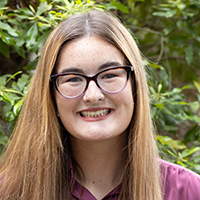 CAMPBELL LACKEY
CAMPBELL LACKEY
Campbell Lackey is a senior majoring in biology and art. His project addresses the lack of a community space on campus for students in underrepresented groups to express themselves creatively. Despite recent increases in mental health awareness, there is still a mental health disparity among college students of color. This project will study the effect of art engagement on Latinx college students’ mental health and sense of belonging in their community through the democratic art of printmaking. Print shops have historically been shared spaces, encouraging collaboration between artists. Through a series of workshops, students will learn basic lessons in printmaking and collaborate with their peers to create works of their own.
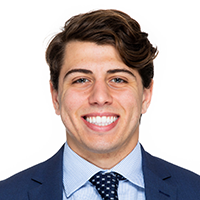 CHRISTIAN LOPEZ
CHRISTIAN LOPEZ
Christian Lopez is a senior majoring in international studies with specializations in Latin America and the Caribbean. He presently teaches English classes and facilitates group speaking activities virtually for the Abraham Lincoln Binational Center in Cuenca, Ecuador for the U.S. State Department. For his Askew project, he will be working alongside the Rural Women’s Health Project and Language Access Florida to develop a multimedia handbook that provides language access to non-English speakers in North Central Florida. The handbook will be a template to equip government agencies, organizations, hospitals, health clinics, and businesses in Gainesville and other areas of North Central Florida with critical information regarding how to best serve multilingual community members. It can be tailored to individual organizations.
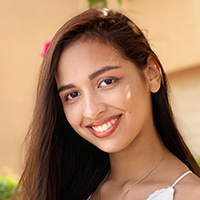 KATHERINE MARIN
KATHERINE MARIN
Katherine Marin is a junior majoring in English literature, U.S. history and Latino studies. Her research, under the mentorship of Dr. Paul Ortiz, director of the Samuel Proctor Oral History Program, will examine a decades-long struggle for civil and labor rights among migrant farmworkers in Florida. The project involves extensive field work, oral history, translating and policy analysis. It will build on data from federal citizenship and immigration agencies, original interviews from her travels and reports from immigration and human rights think tanks. Amidst pressing human rights violations and widespread prejudice on state and national levels, a sufficient history of the mobilization for Fair Food Programs is not complete without the voices of its organizers, she says.
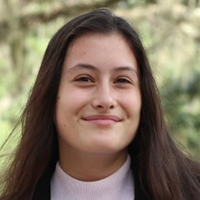 RHIANNON O’DONNELL
RHIANNON O’DONNELL
Rhiannon O’Donnell is a sophomore majoring in data science. Her project is creating an online tool called the Gentrification Risk Assessment Tool (GRAT), which will highlight areas at high risk of gentrification in North Central Florida. Users can input their zip code into the GRAT and view a display of the risk of gentrification in the area, followed by an explanation of what social and cultural factors are the most likely to change as a result of gentrification. Following the development of the tool, she intends to assemble a community dialogue that connects residents to policymakers, so action can be taken to combat gentrification.
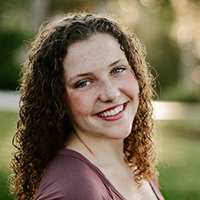 MADELINE SKENA
MADELINE SKENA
Madeline Skena is a senior majoring in sustainability studies and business administration. She will work alongside the Florida Springs Institute to provide accurate information about Florida springs to the public. In the course of her research under the Institute’s Robert Knight, she has studied the impacts of fertilizer use on Florida’s groundwater resources. She plans to launch a social media campaign that disseminates accurate and reliable information to Florida residents as well as state officials. “The hardships that face the Florida Springs and manatees is an issue that I take seriously, and I want to bring about change in a positive way,” she says. “Since 9th grade, my dream has been to become an environmental lawyer and work at the EPA to combat pressing environmental issues.”
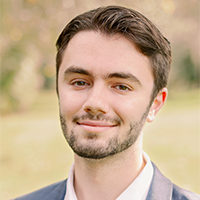 ANDREW TARAMYKIN
ANDREW TARAMYKIN
Andrew Taramykin is a junior majoring in political science and economics. He is passionate about state and local government, civic engagement and voting rights. As an Askew Scholar, Andrew will be conducting research with professor Michael McDonald on the use of at-large electoral districts and their impact on political competition and minority representation in local governments in Florida. He hopes this research will yield results that can guide local leaders to implement reforms that empower voters in their communities and create fairer, more democratic politics for Floridians.
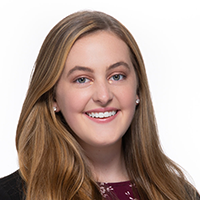 EMMA TOWLER
EMMA TOWLER
Emma Towler is a senior pursuing a double major in political science and economics with a minor in family, youth, and community sciences. Her research will focus on the impact that political affiliation has on emerging adults’ perceptions and attitudes of one another. According to her research thus far, political polarization has increased over the past few decades in the U.S., and there has been an increase in disliking members of the “opposite” political party. Understanding how emerging adults perceive one another in terms of intelligence, trust, and desire to affiliate is crucial, she says, because the research will provide insight into how future leaders will act. The results of this project could provide valuable information for future research studies on the effects of political affiliation since emerging adults’ views are currently understudied relative to previous generations.
